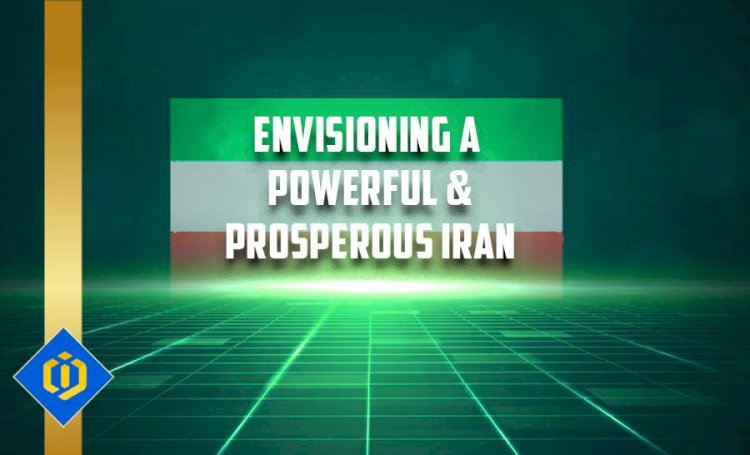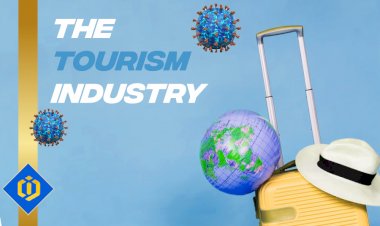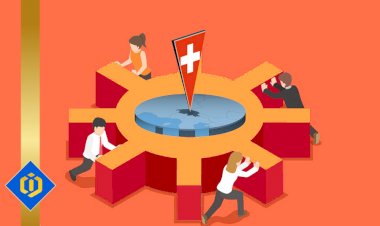Vision of a Strong and Flourishing Iran in the Future

Introduction:
Cyrus the Great's homeland, Iran, is set for a transformative future. Within the next 40 years, Iran has the potential to rise to the top of the global power structure thanks to its advantageous geographic location, rich cultural heritage, and diverse economy. In order to help Iran on its path to becoming a powerful, prosperous, and diverse country, this article lays out a detailed road map.
Creating a Transparent and Effective E-Government:
To fight corruption, restructure bureaucratic procedures, and improve transparency, Iran should invest in creating a blockchain-based e-government system. In order to effectively implement and manage these systems, it is necessary to allocate resources for building the required infrastructure and training government personnel.
Adopting blockchain solutions for documents and certificates:
For certificates and documents, switching to a blockchain-based system can improve security, decrease forgery, and boost productivity. To accomplish this, Iran must create and implement an intuitive digital platform.
Strengthening International Diplomacy and Geopolitical Balance:
Iran should forge close diplomatic ties with both Eastern and Western nations and take advantage of its advantageous geographic position and populace to influence world affairs. This necessitates a dedication to global norms and agreements, diplomacy, and international cooperation.
Leading the way in quantum sciences, fintech, AI, and information technology:
Iran will become a global leader in technological innovation if it makes investments in cutting-edge industries. To draw in foreign investment and talent, the nation must promote research, development, and education while fostering a business-friendly environment.
Increasing Technology Exports and Services:
Iran must develop its technology and service sectors, enhance the business climate, and promote international collaborations in order to produce high-quality, competitive products for global markets.
Diversifying the Oil Industry:
To increase economic opportunities, produce refined products, and lessen its reliance on crude oil exports, Iran should invest in its petrochemical sector and infrastructure.
Developing exports of cutting-edge military technology:
Iran could make investments in the creation of cutting-edge military technology, such as robotics and AI, to establish itself as a market leader. This calls for a concentration on research and development, teamwork with international partners, and adherence to global export laws.
encouraging a diverse and representative government:
An inclusive government will promote national harmony and motivate people to make positive contributions to the advancement of their country. This entails promoting equal rights, access to opportunities, and representation for all citizens, regardless of their race, ethnicity, or religion.
Encouraging environmentally responsible development:
Investing in renewable energy sources, promoting energy efficiency, and putting laws in place to lessen pollution and safeguard natural resources are just a few of the sustainable practices and policies Iran must adopt as it pursues economic growth.
Encouragement of Innovation and Entrepreneurship:
For Iran's economy to develop, it is essential to create an environment that is business-friendly and promotes innovation and entrepreneurship. This entails lowering administrative obstacles, facilitating funding access, and providing tax breaks to new and small businesses.
Building a Skilled Workforce:
By funding educational and training initiatives, Iran can create a workforce with the skills necessary to compete on the world stage. This entails enhancing partnerships with international institutions, implementing programs for vocational training, and increasing access to high-quality education at all levels.
Strengthening the banking and financial sectors:
Foreign investment will be attracted and economic growth will be facilitated by modernizing and reforming the financial and banking sectors. Adopting global norms, fostering greater transparency, and putting laws in place to stop financial crimes are some examples of this.
Investing in transportation and infrastructure:
Improving Iran's transportation and infrastructure will promote trade, tourism, and overall economic expansion. This entails making investments in telecommunications networks, ports, airports, railways, and roads, as well as implementing smart city technologies to improve urban planning and services.
Enhancing Tourism and Cultural Exchange:
Increasing tourism and fostering better relations between Iran and other countries can both be accomplished by promoting Iran's rich cultural heritage and natural attractions. This entails funding marketing initiatives, programs for cross-cultural exchange, and infrastructure for the tourism industry.
Strengthening Social Safety Nets and Promoting Inclusive Growth:
Investments in social safety nets and policies that encourage inclusive growth are necessary to ensure that economic growth benefits all citizens. In addition to putting policies in place to lessen income inequality and poverty, this entails ensuring that everyone has access to high-quality healthcare, education, and social services.
Creating Regional and International Trade Alliances:
To diversify its economy and improve access to new markets, Iran should actively work to establish regional and international trade alliances. This entails taking part in trade negotiations, lowering trade barriers, and coordinating national policies with norms set by other countries.
Assisting R&D in important industries:
Iran can foster innovation and keep a competitive edge by funding R&D in a variety of fields, including biotechnology, nanotechnology, and advanced materials. To achieve this, it is necessary to set up research facilities, encourage academic-industry cooperation, and provide financial incentives for private sector investment in R&D.
Promoting Women's Empowerment and Gender Equality:
Iran's economy can grow significantly if gender equality and women's empowerment are promoted. In order to achieve this, it is necessary to guarantee equal access to education and employment opportunities, end discriminatory behavior, and promote women's participation in leadership positions across a range of industries.
How to Implement Effective Fiscal Policies:
Iran should implement prudent fiscal policies that support long-term economic growth and stability. This entails putting in place effective tax systems, lowering the budget deficit, and responsibly handling public debt. The government should also give infrastructure, healthcare, and other vital industries like education and healthcare a high priority when making investments to spur economic growth.
Enhancing judicial independence and the rule of law:
A stable and appealing investment environment requires a strong legal system. Iran should work to improve the effectiveness of its judicial system, guarantee judicial independence, and advance the rule of law. This entails putting legal reforms into effect, improving transparency, and addressing issues with cronyism and corruption.
Building a Culture of Social Responsibility and Civic Engagement:
A more inclusive and sustainable society can be built by encouraging civic engagement and social responsibility. To address social and environmental issues, this entails promoting volunteerism, aiding non-governmental organizations, and fostering public-private partnerships.
Encouraging the growth of a thriving creative and cultural economy:
It is possible to diversify Iran's economy and advance its distinct cultural identity by making investments in the creative and cultural sectors like design, music, and film. This entails offering financial assistance, fostering international cooperation, and developing venues for showcasing Iranian talent on a global scale.
Banking and Fintech Innovations are Revolutionizing the Financial Sector:
Iran should take advantage of the fintech industry's explosive growth to update its banking and financial services industries. Encouragement of the creation and use of mobile banking, alternative lending platforms, and digital payment systems are all part of this. All citizens will have better access to financial services by encouraging local start-ups and luring international fintech firms.
Using the Swiss Method for Military Production:
Iran can benefit from Switzerland's strategy of creating exclusive, high-quality military goods that are hard to find elsewhere. Iran can further its reputation as a manufacturer of cutting-edge military technology by emphasizing quality, accuracy, specialized niche markets, and adherence to international laws and standards.
Conclusion:
The government, private sector, and people of Iran must work together for the country's future. Within the next 40 years, Iran can achieve its potential as a powerful, prosperous, and inclusive country by adhering to this roadmap. Long-term dedication, thoughtful planning, and the capacity to adjust to rapidly shifting global conditions are all necessary for the accomplishment of these objectives. Iran's readiness to work with other nations in a collaborative manner to build respect and understanding is another essential component of success. Iran can establish itself as a dominant global force and a proud continuation of Cyrus the Great's legacy by adopting these strategies and placing a high priority on sustainable development.
Author: Pooyan Ghamari, Swiss Economist

 content-team
content-team 






















